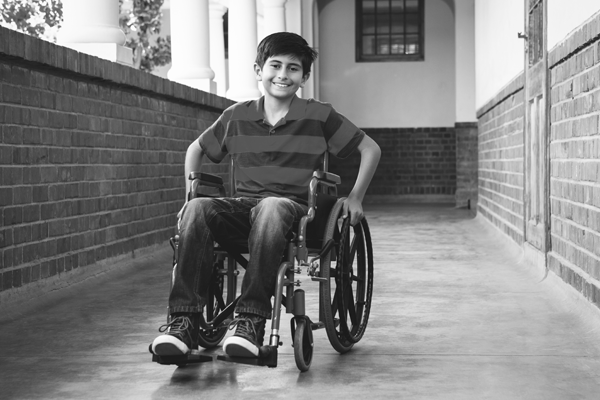A Major Milestone in Cystic Fibrosis Treatment
A Major Milestone in Cystic Fibrosis Treatment https://pediatricsnationwide.org/wp-content/uploads/2021/02/AdobeStock_126797930_lung-header-1024x575.gif 1024 575 Mary Bates, PhD Mary Bates, PhD https://secure.gravatar.com/avatar/c6233ca2b7754ab7c4c820e14eb518c8?s=96&d=mm&r=g- November 25, 2019
- Mary Bates, PhD

A triple medication combination could be life-changing for the majority of patients with cystic fibrosis.
A Phase III clinical trial shows that elexacaftor added to ivacaftor and tezacaftor improves lung function and quality of life in cystic fibrosis patients with the most common genetic mutation, F508del. The triple therapy, known as Trikafta, could effectively treat 90% of people with cystic fibrosis.
“Even though we treated a relatively small number of patients, the size of the effect of this medicine is so huge that it took only small groups to be able to say we have extraordinarily significant results,” says Karen McCoy, MD, chief of the Division of Pulmonary Medicine at Nationwide Children’s Hospital and an author of the study.
“We could tell within hours of starting the medication that something had changed in the patients’ bodies. Within hours, patients felt better and had appetites. It transformed the way their bodies worked.”
Cystic fibrosis is a chronic, genetic disease caused by absence or dysfunction of the cystic fibrosis transmembrane conductance regulator (CFTR) protein. The most common disease-causing mutation is F508del. Up to 90 percent of people with cystic fibrosis have at least one copy of this mutation and almost 50 percent of people with cystic fibrosis are homozygous for F508del.
Over the past decade, CFTR protein modulators have been developed to treat cystic fibrosis. Since CFTR dysfunction caused by F508del is multifactorial, a triple combination of CFTR modulators could result in more improvement.
In a study published in The Lancet, Dr. McCoy and her colleagues report the results of a Phase III clinical trial evaluating a next generation CFTR modulator, elexacaftor, in combination with two currently used CFTR modulators, ivacaftor and tezacaftor. The randomized, double-blind trial was completed at 44 sites in 4 countries. Over 100 patients with cystic fibrosis aged 12 years and older who had two copies of the F508del mutation were randomly assigned to receive the triple therapy or receive ivacaftor plus tezacaftor alone.
Treatment with the triple therapy resulted in profound improvements in lung function, sweat chloride concentration and respiratory-related quality of life compared with ivacaftor plus tezacaftor alone, along with a favorable safety profile. Though the trial was only four weeks long, systemic effects were also noted, with rapid improvements in body weight and BMI.
The findings parallel results from a concurrent phase III trial of the triple therapy in cystic fibrosis patients with a single F508 del mutation published in The New England Journal of Medicine.
Dr. McCoy and her colleagues say that this new combination of elexacaftor plus ivacaftor plus tezacaftor is a major breakthrough that will provide effective therapy for nearly all patients with cystic fibrosis and lead to meaningful improvements in their lives. Trikafta was recently approved by the FDA for commercial use. A small group of people with CF have defects that are not improved by modulators, this group remains the focus of intensified research.
“Not only does this triple therapy provide an important clinical benefit on an individual basis, but the number of people that are affected is substantial,” says Dr. McCoy, who is also professor of Pediatrics at The Ohio State University College of Medicine.
“We will ultimately be able to change the course of this disease dramatically for the vast majority of patients with cystic fibrosis.”
Reference:
Heijerman HGM, McKone EF, Downey DG, Van Braeckel E, Rowe SM, Tullis E, Mall MA, Welter JJ, Ramsey BW, McKee CM, Marigowda G, Moskowitz SM, Waltz D, Sosnay PR, Simard C, Ahluwalia N, Xuan F, Zhang Y, Taylor-Cousar JL, and McCoy KS. Efficacy and safety of the elexacaftor plus tezacaftor plus ivacaftor combination regimen in people with cystic fibrosis homozygous for the F508del mutation: a double-blind, randomized, phase 3 trial. Lancet. 2019 Oct 31. Doi: 10.1016/S0140-6736(19)32597-8.
Image credit: Adobe Stock
About the author
Mary a freelance science writer and blogger based in Boston. Her favorite topics include biology, psychology, neuroscience, ecology, and animal behavior. She has a BA in Biology-Psychology with a minor in English from Skidmore College in Saratoga Springs, NY, and a PhD from Brown University, where she researched bat echolocation and bullfrog chorusing.
-
Mary Bates, PhDhttps://pediatricsnationwide.org/author/mary-bates-phd/December 27, 2016
-
Mary Bates, PhDhttps://pediatricsnationwide.org/author/mary-bates-phd/
-
Mary Bates, PhDhttps://pediatricsnationwide.org/author/mary-bates-phd/
-
Mary Bates, PhDhttps://pediatricsnationwide.org/author/mary-bates-phd/
- Post Tags:
- Cystic Fibrosis
- Pulmonary Medicine
- Posted In:
- Clinical Updates
- In Brief
- Research






